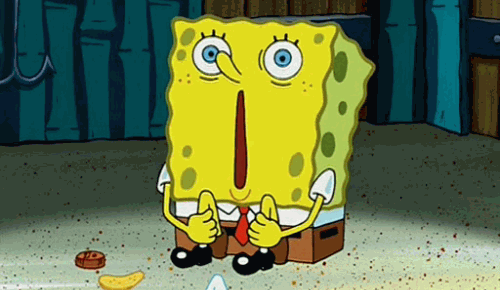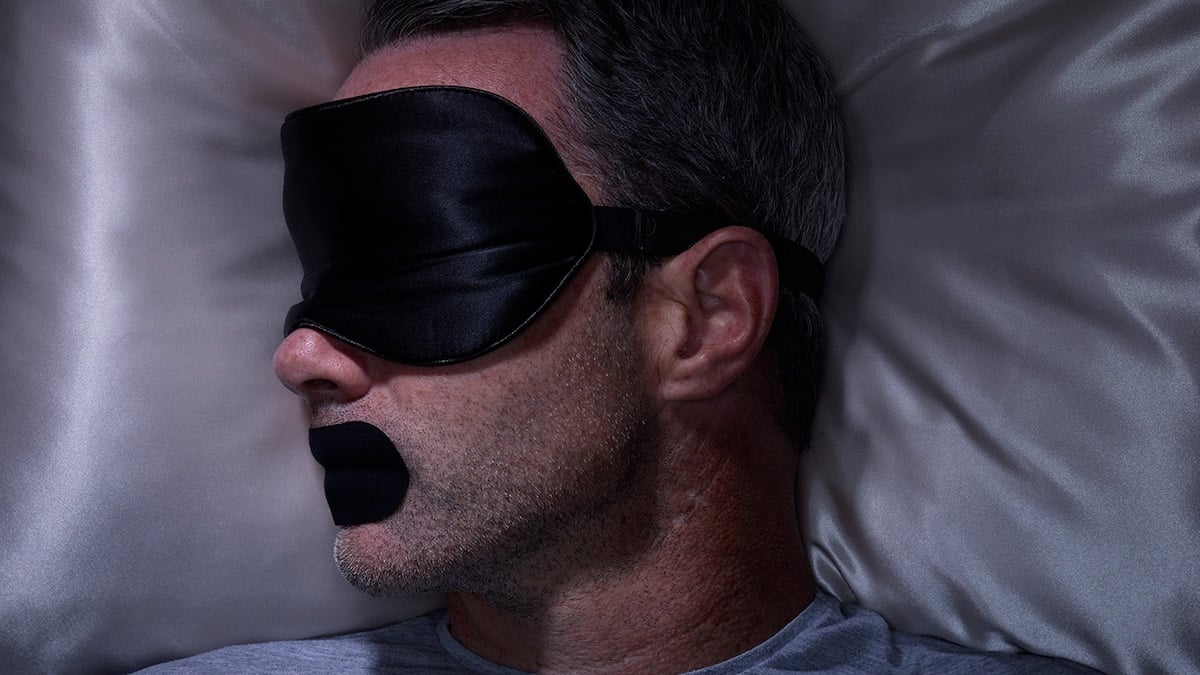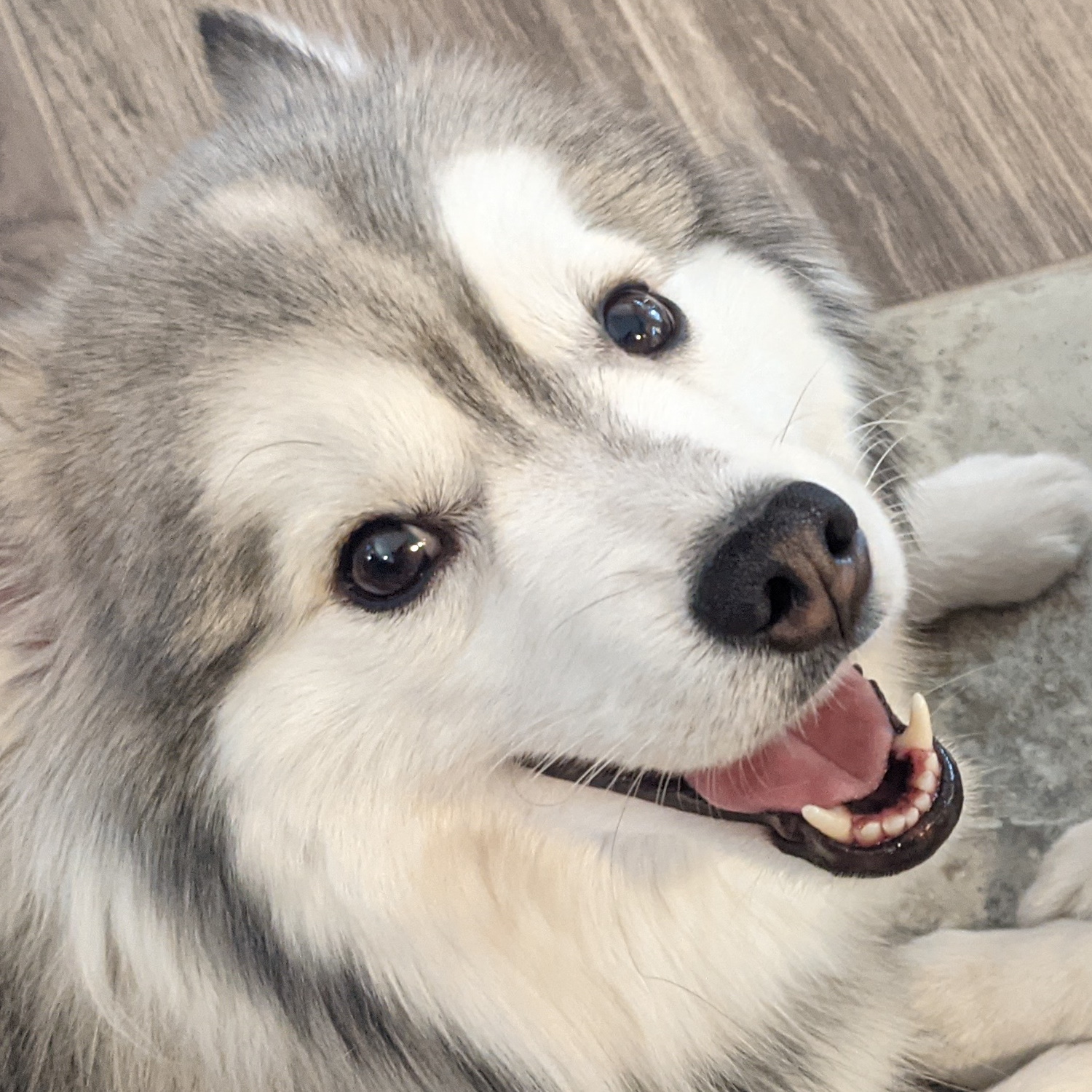…
According to a 2023 survey of 2,005 adults who had recently tried sleep trends, more than one in 10 people had tried mouth taping. People admit to trying the trend to stop snoring, reduce mouth breathing, and for some—to change their face shape. Some videos on the social platform claim that mouth taping improves the jawline and reduces the appearance of a double chin.
Despite the online popularity of the sleep trend, the medical evidence to support this practice is scant, says Indira Gurubhagavatula, professor of medicine at Perelman School of Medicine at University of Pennsylvania, and spokesperson for the American Academy of Sleep Medicine.
Instead, mouth taping may actually cause health problems.
Be careful. All that taping your mouth shut will do is force the spiders to go through your nose instead.
Fun fact, spiders do not wipe their feet before entering bodily cavities. They just track everything in!
Before you know it, you will have a tapir stuck in there.
That’s why you need to cultivate a healthy colony of nose lice to fight off the spiders.
Article is sign-up walled. Can anyone post the potential health problems? I’ve been considering this because I noticed it does help stop snoring if my mouth is closed because it forces me to breathe through my nose.
Edit: Huh, why all the downvotes? I’m just asking if anyone can paste the potential health problems stated in the article because it’s asking you to sign up just to read it.
I mean, first, blocking off one of your two major airways for a period of 8 hours while you’re unconscious sounds like a fantastic way to get suffocated. Doubly so if you have problems with the remaining airway (which of course you do or you wouldn’t be considering this in the first place).
If you snore, “nasal dilators” might be effective: https://en.wikipedia.org/wiki/Nasal_strip
They also have been shown to reduce snoring loudness and improve quality of sleep.
But it depends where in your nasal passage the blockage is. Before I got my septoplasty I didn’t snore much but I found my nose would block up when I lay down; if I rolled over it would clear one side. That’s the “turbinates” in the nose filling with blood (which is usually due to histamine response as I understand it). The strips pull the nasal passages open from the outside, so you should have a little space to breathe even with fully-engorged turbinates.
They’re not very expensive, I don’t think. The only downside is that the adhesive might irritate your skin, but that’s true of taping your mouth, too.
You might also want to get a sleep study done to see if a CPAP would work for you. I know several people who suffer really bad sleep apnoea and all of them said the CPAP gave them the most restful (and quiet) sleep of their life.
Whatever the weather, good luck! Getting shitty sleep makes everything else in your life far harder than it should be. I hope you find a solution that works for you.
I’ll second a sleep study. I’ve used a CPAP for 15 years, and after a few weeks I couldn’t sleep without it.
I try to describe the difference to people by referencing the matrix. You know the weird, green-tinged, fake quality of the world prior to Neo waking up in his little pod? And then on the ship everything was just more real? That’s what the transition was like after a week of CPAP. I realized it wasn’t a normal thing to start nodding off at long stop lights, or have my mind uncontrollably drift away even during one-on-one, face-to-face conversations.
I should say, though, I’m a moderate-to-severe case, and when I asked about surgery, the sleep doctor looked at me and said, “maxillo-mandibular advancement (shatter jaw and move it forward), septoplasty (nose surgery for deviated septum), and tonsillectomy. So surgeries.” Probably will do that, while I’m still in the military, but that I’m willing to suffer all that should tell you how not-fun CPAP is. But it’s considerably better than nothing.
And as it relates to this article, when I was initially trying nasal pillows (cpap mask that just attaches to the nostrils), my mouth kept being forced open, even with a strap holding my jaw closed. My sleep doctor suggested taping my mouth shut, and that was a hard no from me. With the deviated septum, I only ever have one nostril open, and if I got a cold, I’d rather not wake up unable to breathe from ANY opening until I could get the tape off.
Thanks! I actually do not have any issues and was just considering it to combat my occasional light snoring when my neck and head are positioned in a certain angle that I breathe more through my mouth. I do get the slight congestion on one nostril that you described where turning to the other side relieves it. The article does say the risks are for people who already have issues in the first place. But yeah, with the slight congestion I sometimes have, I’m still not risking having only one nostril to breathe through the entire night.
Well that’s good news indeed! You can see if the strips might help with the snoring you do experience by performing “Cottle’s Maneuver”: https://www.ashfordclinic.com/blog/what-is-cottle-s-maneuver
You can try it when one side of your nose gets blocked too, to see if the steps would alleviate that as well, if you don’t do that already. I’ve used it my whole life and didn’t know it was a “thing” until my ENT showed me it and named it.
Potential health problems of mouth breathing or taping to combat mouth breathing? From my reading it sounds like if you have any kind of respiratory condition - asthma, sleep apnea, even allergies then it could be risky.
(I can rarely get congested to the point of not being able to get enough air through my nose in the middle of the night without warning so I feel like I could suffocate if I tried this, plus most nights I’m able to nose breathe most of the time anyway)
Thanks! Yeah, sounds like it can be an issue if you already have existing sleeping or breathing issues. I personally don’t have any of that and was just thinking about it to combat my occasional light snoring. Still not doing it though because I do sometimes get congestion (one nostril at a time) and completely shutting off the mouth will definitely make it harder to breathe.
deleted by creator
Tape both, and you’ll sleep for the rest of your life!
I really like how you repeated the same joke, ty :)
Much longer too!
Cpap has basically transformed my wife’s life, I think that is a better idea
Some people claim that the air holds all the nutrients you need, and you can get used to not eating at all. Doesn’t make it less stupid, though. (Breatharianism)

she cute
I’ve been doing this and it has been helpful.
The main reason I tried it was that my snoring was bothering my wife and it only happened when I was breathing through my mouth. I also had my dental hygienist comment that I must be a “mouth breather” when I’m sleeping, despite not being one while I’m awake.
I use a Breath Right strip on my nose, and the tape I use only keeps my mouth from opening involuntary. I could open my mouth easily if I tried, so I’m not really worried about suffocating or anything like that.
It felt a bit weird at first but it has definitely curtailed the snoring, so my wife likes it. Maybe it’s not for everyone, and some of the stories people tell about it seem pretty woo-woo, but it does what I need it to do with little trouble.
If your nose happens to get plugged from allergies, this could be dangerous. You would probably wake up before suffocating but I’m not a doctor so I dunno.
I have heard that some CPAP machines have a foam that degrades and makes it’s way into people’s lungs which is scary. And they aren’t even necessarily cheap CPAP machines. Just, buyer beware on that front too.
I think everyone should just be making whatever decision is right for them and their circumstances.
That was the Philips Respironics machines, if you were to use the SoClean or other “activated oxygen” style cleaning systems, it would disintegrate the noise suppression foam, which was placed where it would enter the airstream. The foam particles aren’t good for your lungs, and Philips recalled all their machines because of it.
I have trouble sleeping but I’m not trying this.
Wtf!?
I’ve tried it and it definitely helps my sleep, but I certainly didn’t cover my mouth. A small strip below the nose across the lips, vertically, was sufficient. I was still able to breathe out of the sides of my mouth, holding my nose (as a test). I used a brand of sensitive skin kinesiology tape and had no issues, aside from needing to be clean shaven, or close to it.
My use case was I sometimes snore and would wake up with particularly bad breath, depending on the position I slept in. I had no “jawline” or “double chin” goals.







